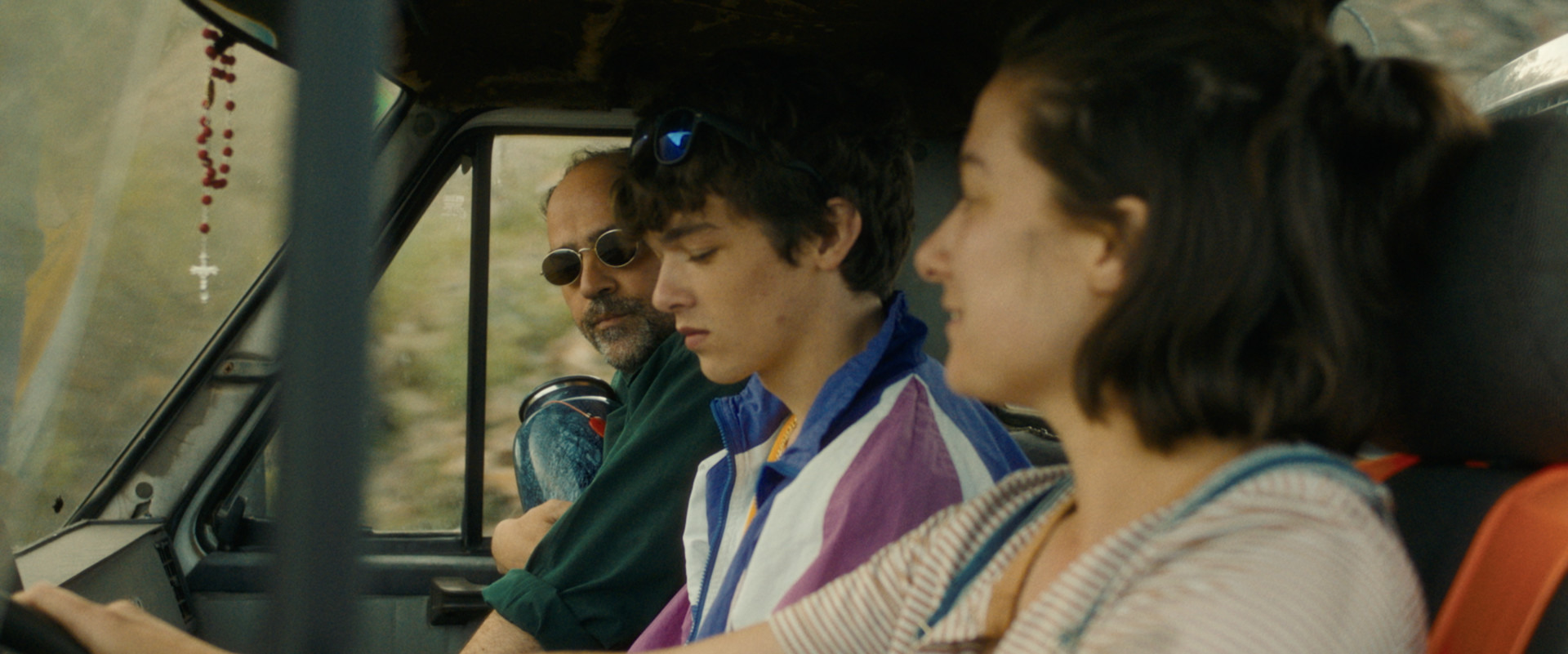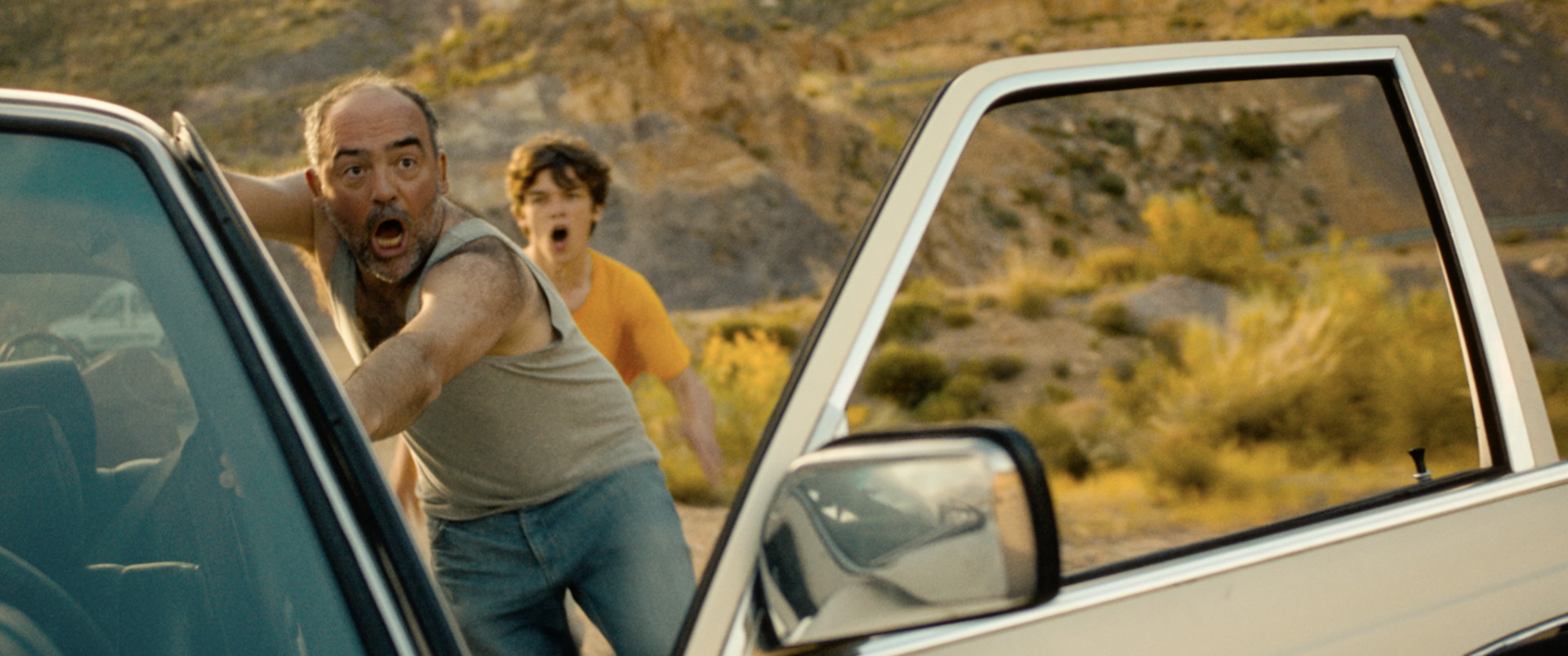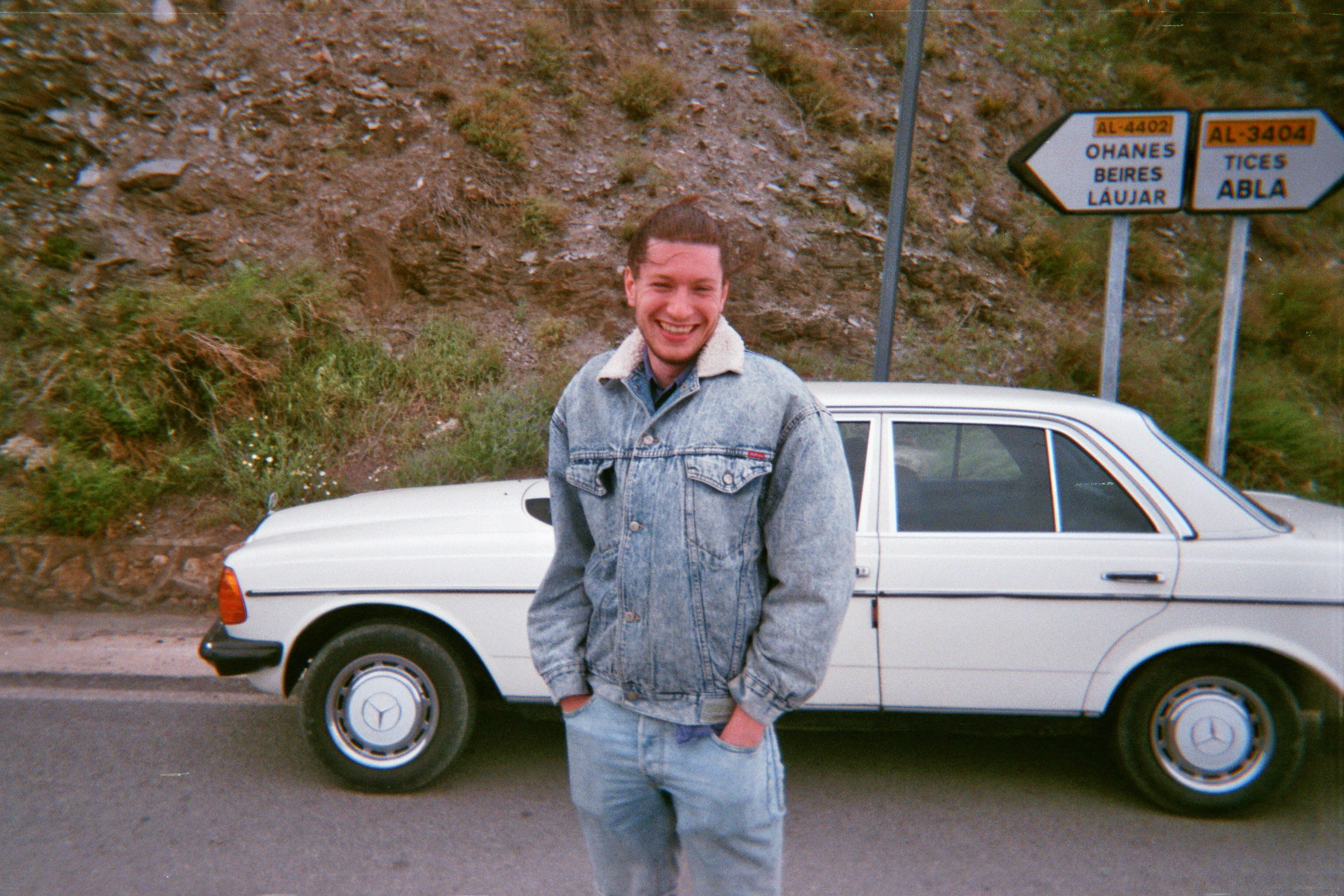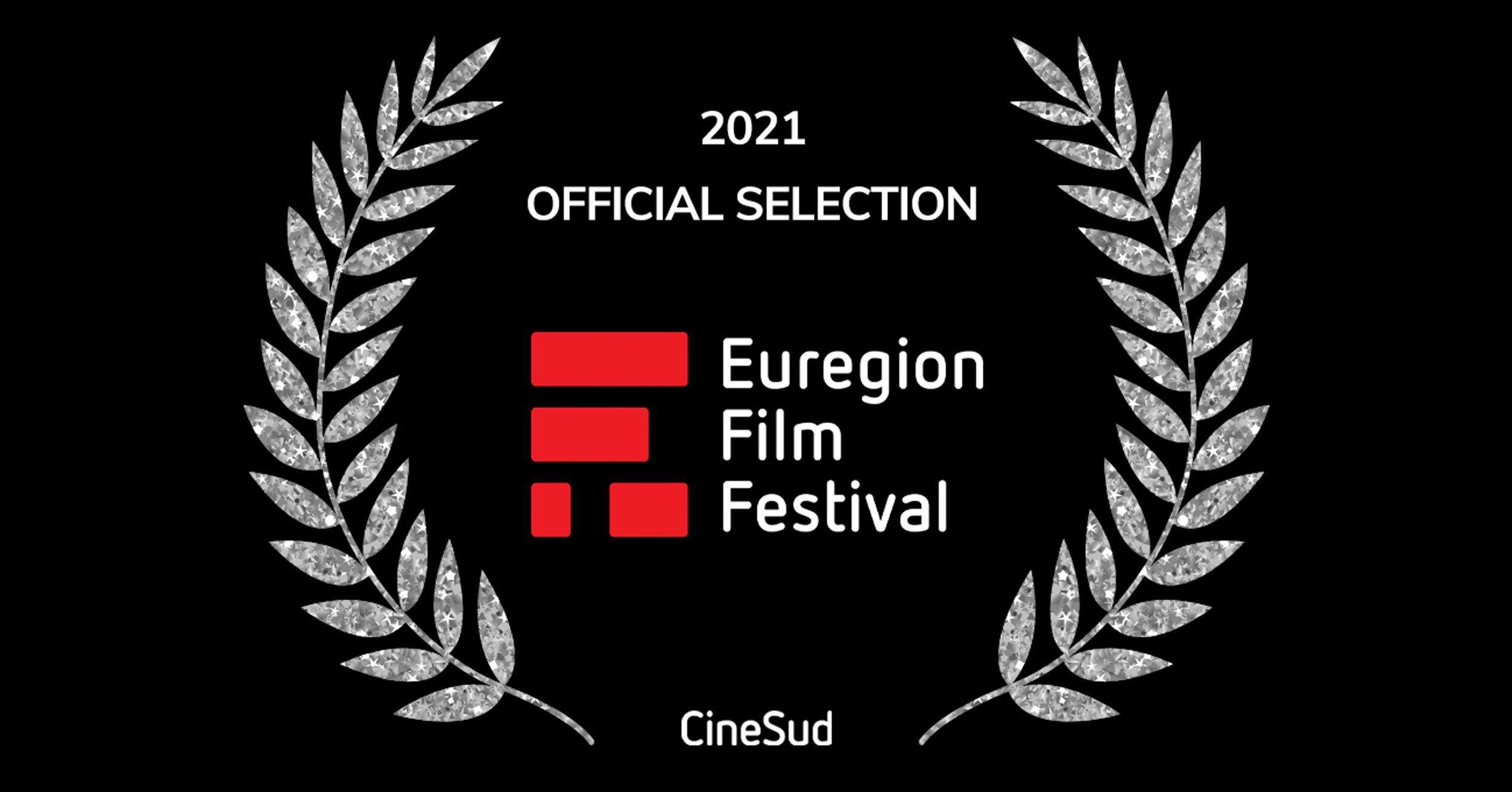
Case Study: Mama's Ashes
David Warringa's passion project took over two years to make.
Geplaatst op 14 februari 2021Mama's Ashes originated as the graduation project of David Warringa, at the Utrecht Arts University. He wanted to develop his creative and substantive skills by telling a story based on his own experience of growing up with a stepfather. He involved director and writer Caspar Commijs to help develop this story. They wanted to combine the theme with their love for other cultures and countries and decided to make a roadmovie, in which a son and stepfather that couldn't get along had to find each other. Having had a premiere at the Dutch Film Festival in 2020, Commijs now looks back at the intense production process.
"The seventh day of shooting was planned 'just in case'. Well, we really needed it."
Challenging first steps
"In the beginning we were still thinking about involving a writer to write the screenplay. It was hard trying to find someone who was willing to write this story for free. However, we did find two writers who were enthusiastic and generous enough to put their time in without any promise of reward. We had them write a first draft based on the story David and I pieced together. They were a great read and it was nice seeing our story detailed in scenes we had never thought of. However, something was missing. We felt neither draft quite matched the style we wanted to implement in the film. We decided that I'd write the screenplay myself. In the following month or so I'd written the third draft and we were really happy."
"The preproduction had its challenges. It was a first time producing abroad for us, so we had to think about the feasibility during the writing process. Luckily we had gotten a Spanish commercial producer, Eva, on board to help us produce the movie. She helped us by examine all the possibilities for filming in and around Canjayar. After she had come with some suggestions for locations, we organised a location scout in Spain with a mini crew. It was great to finally see everything come together on the locations where the story would take place. Eva made her house available for us to stay during location scouting and shooting, which made everything so much more affordable."
Eight crew members, ten days
"We couldn't afford to travel to Spain more than twice, so everything had to be arranged from the Netherlands. From accommodation to picture vehicles: everything had to be ready for the shoot. We had tried to keep the concept as feasible as possible without losing the images and events we loved the most, so there were still some big challenges. The character of the stepfather had to be a Spanish man who could also speak a little bit Dutch. Unfortunately, none of the casting agencies in the Netherlands could find a suitable actor for the role. After a long search we found one ourselves. Carlos was perfect for the role and we were thrilled to hear he was available to play the part."
"We had done a full breakdown of the script and planned to shoot the film in six days. At the start of April 2019, we travelled to Spain with a crew of eight. The DOP and the boom operator drove the lighting van stuffed with all the gear and art props, while the rest travelled by plane. With six shooting days, one prep day, one day break, one pack day and one extra day just in case, the crew was in Spain for a total of ten days."

Setbacks while shooting
"In hindsight we had the best of times. But as with any movie production, smooth sailing was rarely involved. We were about to hit some bumps in the road, fast."
"The first day of shooting went great and spirits were high. We did come to the realization that Carlos spoke a little less Dutch than we had anticipated. The multilingual movie definitely became a challenge. Carlos had to speak quiet a bit of Dutch, Bas had to speak some English. Paige, who is originally Canadian, had to speak fluent Spanish. Also Caspar had to direct some scenes where all the language was Spanish, which we really hardly understood. However, due to the cooperation with Carlos he made clear what he was saying and what parts were different from the lines in the script. We were all working, for some parts at least, in languages we didn't understand or didn't master. It was great fun really, and we really love how it all comes together in the movie. It can create distance between characters and connect them at the same time."
"On the second day the picture vehicle that was needed in 80 percent of the scenes, broke down. The car had to go to the garage to get repaired. We were crushed. How could we possibly finish the movie without the car? We had to think fast. After a speed consultation Caspar and David decided together with the first A.D. to make a new shooting schedule and a plan B in case the car would not be able to drive again."
"We had rescheduled all the scenes without the car to be filmed on the third day, while waiting for any news. By the end of the day we were relieved to see the car return, driving and all. It had been fixed very quickly and was in good condition for the other shooting days. Because of the extra day we had planned, there was almost enough time to shoot the scenes that we hadn't been able to shoot the day the car broke down. "

'We were starting to feel like the production was cursed'
"Unfortunately, the day after our picture vehicle had been returned, the Spanish production assistant's car broke down. That made the production a little bit more difficult, because she couldn't make it back to the set. Communication with the locals became more difficult. Luckily Carlos took it upon himself to help us out with this, but you'd rather not let your actor have these kinds of extra responsibilities. When two days later another picture vehicle (the tow truck) broke down en route to the set, we were starting to feel like the production was cursed. This feeling was confirmed on the seventh day."
"We hadn't shot most of the exterior shots of the car passing through the Spanish landscape, due to the time pressure caused by all the things that went wrong. The seventh day was planned 'just in case'. Well, we really needed it. You don't have a road movie without a car driving on the road. There were also a lot of very important inserts that we had left to shoot this 'extra day'. Shots of the picture of the mother, shots of the interior of the car - shots that we really needed to ramp up the tempo in the opening sequence for instance. The morning started off well with Wiegert (DOP) traveling to a cliff to shoot the plate that we'd use for the car falling off the cliff. After he'd come back and we were getting ready to move to the location where we'd shoot the passby's, fate struck. The camera wouldn't turn on anymore."
"There was no way we could get it to work and after calling with the rental in the Netherlands, we decided the camera was a lost cause. There was only one option left. Wiegert had taken his Canon SLR camera with him to take pictures. It could also shoot RAW files up to 15 minutes. We had to use it to make as many passby shots and inserts as we still could. It was hard getting the shots right. The camera wouldn't mount on our tripod and focus had to be done manually, without a good reference monitor. The passby shots especially took a lot of space because you have to start shooting before the car comes into the frame, and it was sometimes hard to determine when that would be (due to road length, traffic, etc.). Therefore we needed to transfer the data many times during the day because the card would fill up so fast, and we had only one. By the end of the day however, we had made enough shots and we were ready to go home. You can hardly see the difference between the shots made with the Alexa Classic and the Canon SLR after the amazing color grading by Judy Steenman."

Adventure and pride
"The ten days were full of stress and adventures. It was so special thing to make a movie with a Dutch crew in a country where you hardly know anybody. Everyone was so friendly and we received so much support from the locals. Despite everything that went wrong, we were so lucky with how we managed to capture almost all the scenes we had in mind and make a movie we are very proud of. We can surely recommend any young filmmakers that want to shoot their movie abroad to go and do it. However, make sure you know somebody locally who can help you set up things. And do plan that extra day, just in case."
"Back in the Netherlands we had one week to recover from all the adventures. After this week we started with post production. The editor had made a first version and even though it was a hard watch, we did see the potential for a short film with a good balance between comedy and drama. From the start we didn't want to make a movie that was too dark but also didn't want to make a movie without a goal. We wanted to make people think and talk about the difficult relationships between kids and their stepparents. To find the right balance to tell our story, we experimented a lot with the material. We cut out a lot of the more slapstick, killed a lot of darlings."

Fifteen months of post production
"We also wanted to emphasize the fact that the story takes place in Spain and make the viewer experience this world and its atmosphere. The best way to do that was to use flamenco music. We found a flamenco guitarist in the Netherlands who wanted to help us by composing and performing music. The guitarist had no experience with film and it was a difficult process to make music that fitted the edit, without overruling dialogue or important moments that needed silence."
"We were dependent on people who worked for us out of charity and passion, so it was hard to have strong deadlines. If some paid work would turn up for them it would mean our project would be postponed. We worked for almost fifteen months on post production, which sometimes left us feeling hopeless. Would we ever be able to finish the movie? On the other side, it gave us the chance to think a lot about every decision we made. Maybe it was a luxury in disguise?"
"When you take so long finishing a movie however, a lot of stuff gets lost in translation and you have to do a lot of work twice. We wouldn't recommend extending your post production this long. Set hard deadlines for yourself and your crewmembers, and then try to stick to it. After more than two years since we started, the movie is finally finished. And we can proudly say we're quite pleased with the result."
(c) All visual material is used with the filmmaker's permission.
